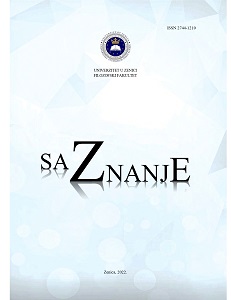PHASES OF GAMIFYING CROATIAN WEB DICTIONARIES (THE EXAMPLE OF MREŽNIK)
PHASES OF GAMIFYING CROATIAN WEB DICTIONARIES (THE EXAMPLE OF MREŽNIK)
Author(s): Josip MihaljevićSubject(s): Lexis, Computational linguistics, South Slavic Languages, ICT Information and Communications Technologies, Distance learning / e-learning
Published by: Filozofski fakultet, Univerzitet u Zenici
Keywords: conceptual framework; game development; game-based learning; gamification; web dictionary;
Summary/Abstract: This paper focuses on the phases of gamifying Mrežnik. The gamification process was conducted at the Institute of Croatian Language and Linguistics on the project Croatian Web-Dictionary – Mrežnik. The games can help players in learning specific language and dictionary contents. Mrežnik consists of three modules: the module for adult native speakers of Croatian with 10,000 entries, the module for schoolchildren with 3,000 entries, and the module for non-native speakers with 1,000 entries. Some games based on the dictionary content for all three models were developed, and some are still in the development phase. A conceptual framework for gamification was created in parallel to creating these games and includes planning, developing, testing, and implementing the games within the dictionary. The first step was identifying game types and gamification elements present in dictionaries and other lexicographic publications. Before creating dictionary games for the Mrežnik project, the types of educational games and gamification elements used on websites of lexicographic publications were identified (183 web dictionaries and 76 encyclopedias were analyzed). After identifying all possible game types for learning many different types of dictionary content, the next step involved the design and later development of the first versions of dictionary games which contain basic gamification elements such as scoring, leaderboards, levels, time limits, and badges. The next step involved game testing, which was done with two groups of foreign students learning Croatian. The results of the conducted research showed that games can help students learn Croatian as a foreign (other) language. The games for children were presented to groups of elementary school students visiting the Institute of Croatian Language and Linguistics. Based on users' feedback, the games were later modified. The last step involves publishing games, promoting them, and monitoring user satisfaction.
Journal: saZnanje
- Issue Year: 3/2022
- Issue No: 3
- Page Range: 125-138
- Page Count: 13
- Language: English

